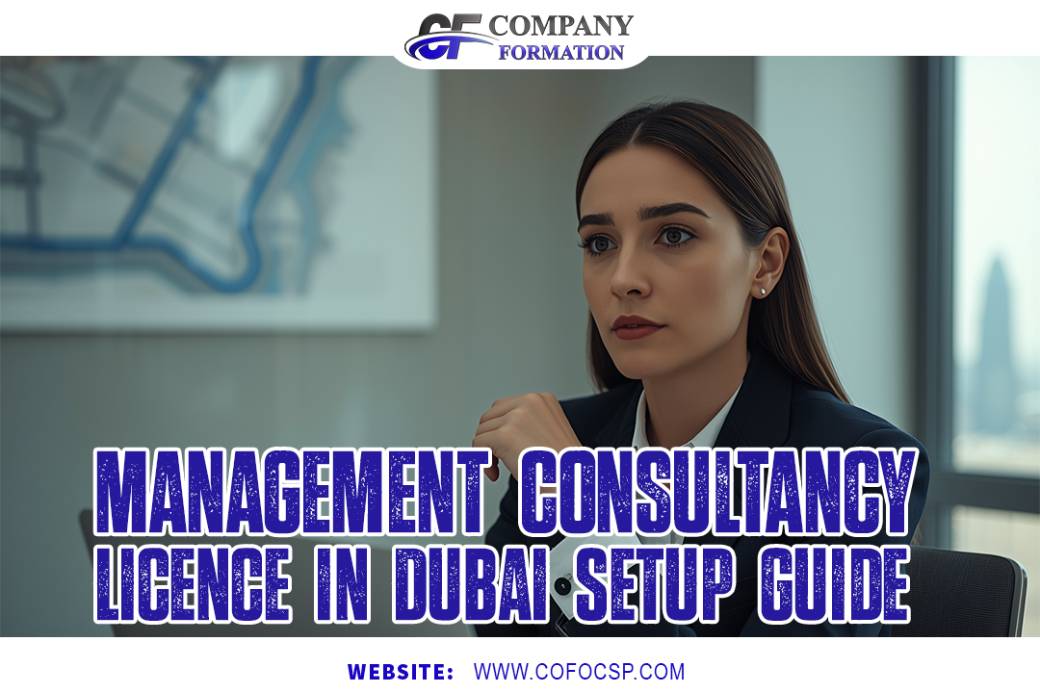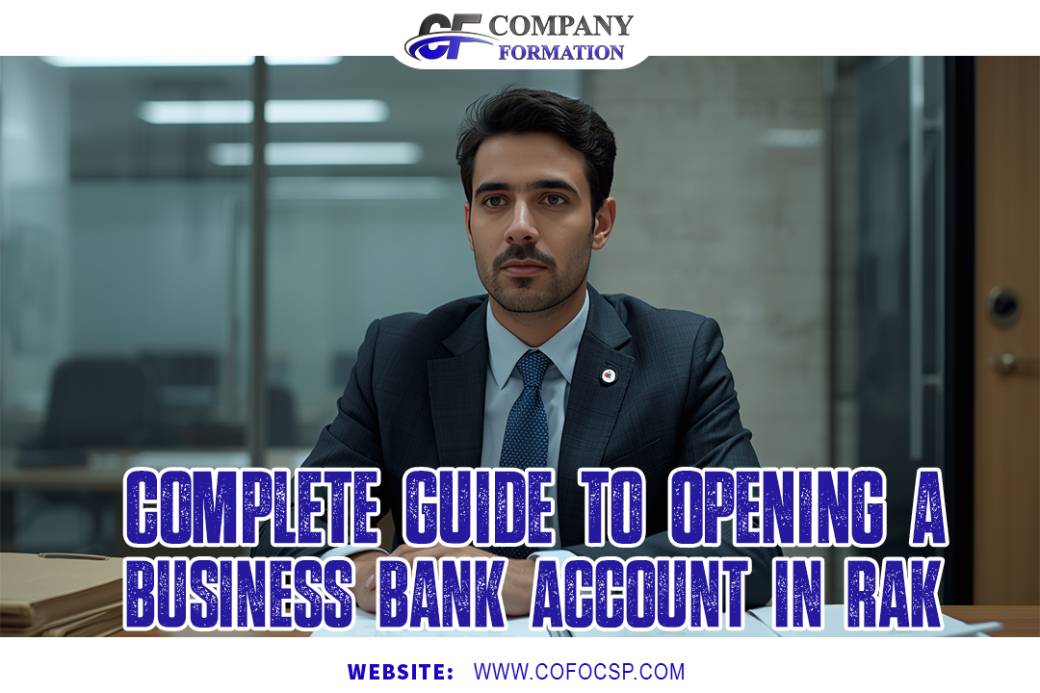Mainland Business Regulations in UAE 2025 | Complete Guide to Company Formation
To set up a business in the UAE mainland, you need to get your business registered with the Department of Economic Development (DED), in line with the Federal Decree Law No. 32 of 2021, and obtain a trade license. When you’re approved, you will be able to select a business activity from over 3,000 options, choose a legal structure (e.g., an LLC), and receive approval in principle. Necessary documents for the application are passport copies, MOA, and Ejari certificate. Foreigners can own most businesses 100% although some do need a local sponsor. The cost is between AED 12,000 and AED 30,000, as well as office rent fees.
It can be an amazing opportunity to start a business in Dubai or one of the emirates, whether to gain access to the local market or to try and bid for government contracts. Here’s a clearer path on how you can follow the new business regulations and start your onshore business in 2025, as well as step-by-step guidance on how to provide specific services and products.
Understanding Mainland Business in UAE
A mainland business is any onshore business licensed by the Department of Economic Development (DED) in an emirate such as Dubai or Abu Dhabi. Regulated by the UAE Commercial Companies Law (Federal Decree Law No. 32 of 2021), it is eligible to conduct business throughout the United Arab Emirates and worldwide, without any restrictions on zones; as opposed to free zone companies, which are generally limited to certain zones. This fact makes it perfect where a company is looking to service only the local market, such as a restaurant or a consultancy.
The UAE’s business-friendly environment promotes economic growth with simplified regulations. For example, I’ve assisted a client in opening a retail store in Dubai by utilizing the mainland license, meaning they could sell locally directly to customers. Options are numerous, with more than 3,000 Dubai mainland business activities on offer, ranging from commercial activities to professional services.
Benefits of Setting Up a Mainland Company
Why an onshore business in the UAE? Here are the key advantages:
- Market Access: Trade directly in the UAE and its economic zones, and auction for government contracts.
- 100% Foreign Ownership: Most sectors didn’t permit full ownership without a local partner, until 2021, under the Federal Decree Law No. 32.
- No Upfront Capital: You can begin with no capital requirement in advance, no financial stress.
- Location: office location – on the mainland of Dubai, office space – at least 100 – 200 sq ft.
- Profit Repatriation: Profits and capital can be repatriated 100%, benefiting foreign investors.
- No Audit Needed: Streamlined compliance, no annual audit required.
- Visa Flexibility: All you need to really do is secure a work visa, and there are still UAE Golden Visa opportunities to be had.
- World-class workforce: Tap into the skilled talent pool of the UAE.
- Business-Friendly Regulations: The DED and the Ministry of Economy assist with business growth.
These advantages solve pain points such as compliance costs and market entry barriers, and that’s why UAE business formation is appealing to entrepreneurs and companies from overseas.
Mainland Business License Types Explained
The area and sector of your mainland business activity are important to achieve success. The Dubai mainland license activities list now exceeds 3,000 options. Here’s a breakdown:
- Commercial License: If for business purposes, such as retail or import/export. Example: A general trading business.
- Industrial Licence: To make or produce, such as in factories.
- Professional Licence: Includes these services, e.g., consulting, IT & engineering consultancy.
- E-Trader Licence: Licence for home-based or online businesses, suitable for freelancers.
- Double Licence: Integrates mainland and free zone operations and licenses.
- Instant Licence: Accelerated establishment of selected business activities.
- SME License: Provides support for SMEs in the form of Dubai SME benefits.
- Intelaq License: For home-based activities of Emirati/GCC nationals.
A tech consultant whom I advised, for example, opted for a professional licence for the added freedom. Visit the IID Portal to view the list of activities in Dubai mainland and apply online.
Choosing the Right Legal Structure
Do you actually understand what the heck a legal structure is, and does? Options include:
| Legal Structure | Key Features | Ownership | Liability |
| Limited Liability Company (LLC) | – Common for most business activities- 100% foreign ownership allowed in most sectors | 100% foreign ownership (except in some sectors) | Limited to capital investment |
| Sole Proprietorship | – Full control by one person- Ideal for professionals and freelancers | 100% foreign ownership possible | Unlimited personal liability |
| Civil Company | – For licensed professionals (e.g., doctors, engineers)- Needs local service agent | 100% foreign ownership | Partners bear unlimited liability |
| General Partnership | – 2 to 50 partners- Equal or near-equal control by all partners | 100% foreign ownership possible | Unlimited liability for all partners |
| Limited Partnership | – Has both general and limited partners | Mixed ownership | General partners: unlimitedLimited partners: liability limited to investment |
| Private Joint Stock Company (PJSC) | – 2 to 50 shareholders- Suitable for larger or capital-intensive businesses | UAE nationals and foreigners | Liability limited to share capital |
| Public Joint Stock Company | – Raises capital from public via share offerings- Usually for large corporations | Public shareholders | Liability limited to share capital |
| Branch Office | – Extension of a foreign parent company- Cannot operate independently | 100% owned by parent company | Parent company bears full liability |
For example, an LLC was right for a trading business I backed, while a civil company was right for a health care consultant. The Al Wajeez guide sets out the UAE legal system.
How to Register a Mainland Business in UAE: Step-by-Step
Step 1: A Categorized Business Activity:
You can select business activities like commercial, industrial, and professional in the DMCC business activities list.
Step 2: Reserve Trade Name:
Choose a unique name through the DED or the IID Portal that describes your business activities and that does not have restricted terms (such as pertaining to religion).
Step 3: Choose a Legal Structure:
Decide what sort of LLC, sole proprietorship, or other type of business entity you should complete based on ownership and liability preference.
Step 4: Get Primary Approval:
Apply in person to the DED with passport copies and activity in order to get your primary approval.
Step 5: Obtain External Approvals:
If you are in the healthcare services or telecom sectors, get an approval from the Dubai Health Authority, the Ministry of Education, or the Telecommunications and Digital Government Regulatory Authority (TDRA).
Step 6: Draft Legal Papers:
Draft either a notarized MOA, tenancy agreement, and other agreements, certified by the UAE Commercial Courts or a notary public.
Step 7: Rent An Office:
Rent a 100-200 sq ft office and then register through the Land Department portal so you can collate an Ejari.
Step 8: Get Business License:
Documents to DED for Trade license and other permits, including Rera attested lease.
Step 9: Open a Corporate Bank Account:
You can use your business license and MOA to open a corporate account in the UAE with banks such as Emirates NBD.
Step 10: Visa application:
Consult with the General Directorate of Residency and Foreign Affairs for employment visas and UAE Golden Visa options.
Step 11: Post-licensing Formalities:
the MOHRE labor file, e-signature card, and the UAE Chamber of Commerce registration.
One startup I assisted was able to simplify name reservation and initial approval through the DED online system and have it completed in three weeks.
Essential Documents for Company Formation
For the inclusion of mainland business, prepare the following documents:
- Register application: Through DED or through the IID portal.
- Trade name booking certificate: From DED.
- Passport copies: Pow shareholders (and visa pages, if any, for non-GCC nationals)
- Passport photographs: For shareholders and managers.
- MOA Copy in notarized form: Reflecting ownership and purpose of the company.
- Tenancy contract (Ejari): Proof of a tenancy contract for an office space.
- Business plan: For licenses such as industrial operations.
- NOC and FRIIC NOC for FRIIC activities/Foreign investors.
- Parent company papers: For branches, legalized by the UAE Embassy and the Ministry of Foreign Affairs.
Foreign language MOAs require MOA translation and legalization by the MOJ. I have seen delays due to missing attestations, so triple-check with business setup consultants in Dubai.
Compliance Requirements for Mainland Businesses
Business compliance on the mainland, and life just goes smoothly. Key requirements include:
- VAT Filing: Compulsory if turnover exceeds AED 187,500, as per UAE tax rules.
- Emiratization Quotas: Certain employers are required to employ UAE nationals, as per MOHRE requirements.
- Health & Safety Compliance: Follow the Dubai Municipality or any local department’s rules for office safety.
- Ultimate Beneficial Owners (UBO): Statement of ownership to comply with anti-money laundering, as per Federal Decree Law No. 32.
- Labour File & E-Signature Card: You will have to open your labour file with MOHRE and obtain an e-signature card to process your visa.
- $50 Registration Chamber of Commerce: Network and trade opportunities.
- Renew your trade license every year to ensure regulatory standing.
Just as you are missing your VAT compliance, I have told customers to offer PRO services as a way to stay compliant and avoid penalties.
Costs of Mainland Business Setup in UAE
There are different prices for mainland company formation UAE and activities. Here’s a breakdown:
- Trade Licence Fees: 12K – 30K AED for a commercial, industrial, and professional license.
- Office Space Rental: AED 20,000– AED 50,000 per annum for 100-200 sq ft.
- Applied On: Government Approvals, if any: AED 1,000–AED 5,000 Initial approval, or special approvals (such as RTA approval).
- Visa Fees: AED 3,000–AED 5,000 per work visa.
- Local Sponsor Fees: AED 10,000 to AED 20,000/year for LLCs in key industries.
- PRO Services: AED 5,000–AED 15,000 for business setup service.
A consultancy I helped set up paid AED 18,000 for the professional licence and AED 30,000 for an office, which together added up to AED 50,000. These registration costs for mainland businesses are subject to confirmation by the DED.
Mainland vs. Free Zone vs. Offshore: A Comparison
Mainland vs Free Zone Business Laws and Comparison. Want to know “Mainland vs free zone business laws and comparison”? Here’s how they differ:
| Aspect | Mainland Company | Free Zone Company | Offshore Company |
| Ownership | 100% foreign ownership in most sectors | 100% foreign ownership | 100% foreign ownership |
| Market Access | Full access to UAE local market and international trade | Can trade within the Free Zone and internationallyLimited local UAE access | No access to UAE local marketInternational trade only |
| Government Contracts | Eligible for government contracts | Not eligible | Not eligible |
| Tax Benefits | Subject to corporate tax (some exemptions may apply) | No corporate tax and no customs duties | No corporate tax |
| Office Requirement | Physical office space is mandatory (Ejari registered) | Office/desk space in the Free Zone required | No physical office needed |
| Visa Eligibility | Eligible to apply for visas | Eligible to apply for visas | Not eligible for UAE visas |
| Privacy | Moderate | Moderate | High (favorable for confidentiality and asset protection) |
| Setup Cost | Generally higher due to office, licensing, and possible local sponsor fees | Moderate setup costs | Lowest setup cost among the three |
| Legal Restrictions | Can operate anywhere in the UAE |
A retail client of mine decided on a mainland company for local sales, while an export company went with a free zone. Use the DED’s Business Setup Recommendation Tool to help you decide.
Common Challenges and Solutions
There can be challenges when setting up a mainland business in the UAE. Here’s how to tackle them:
Challenge: Ensuring a trustworthy local sponsor for key sectors.
- Solution: Connect with reliable local service agents in PHPVAR business setup consultants in Dubai.
Challenge: Delays in external approvals for industries such as healthcare services.
- Solution: Plan your documents ahead of time and seek advice from regulatory bodies such as the Dubai Health Authority.
Challenge: Understanding quotas or VAT compliance, or Emiratisation.
- Solution: Not to worry, with PRO services or MOHRE rules, you won’t be breaking any laws.
Challenge: High mainland business setup costs.
- Solution: Get an SME or Intelaq License, which saves money.
Challenge: Trade name conflicts.
- Solution: Apply only after checking availability through the IID Portal.
I once assisted a client with the resolution of her trade name dilemma by providing her with a few other trade name options, which facilitated the name registration process.
Frequently Asked Questions
Q1: What are the steps to register a mainland business in the UAE?
Register with the DED, choose a business activity, reserve a trade name, secure initial approval, prepare a notarized MOA, lease office space, and obtain a trade license. Post-licensing, open a labor file and a corporate bank account.
Q2: How long does mainland business registration take?
The process takes 2–8 weeks, depending on business activity and approvals. Using DED online platforms or PRO services can expedite company formation in Dubai.
Q3: What are the penalties for non-compliance with mainland regulations?
Fines or license suspension for missing VAT registration, Emiratisation quotas, or license renewals. Regular compliance audits prevent issues.
Q4: How do mainland business regulations differ from the free zone?
Mainland businesses trade locally and globally, require an office space lease, and may need a local sponsor. Free zone companies focus on international trade with corporate tax exemptions but are location-restricted.
Q5: What are the UAE mainland business registration requirements for 2025?
Submit passport copies, a notarized MOA, an Ejari certificate, and a business plan. Secure initial approval and external approvals for specific sectors, per Federal Decree Law No. 32.
Conclusion
Navigating mainland business regulations in 2025 opens doors to Dubai’s thriving economy. With 100% foreign ownership, no minimum capital requirements, and access to government contracts, UAE company incorporation is more accessible than ever. By following the step-by-step mainland business registration process, securing DED licensing, and staying compliant with UAE commercial law, you can build a successful onshore business.
Ready to launch your mainland company in the UAE? Use the IID Portal, consult business setup consultants in Dubai, or contact the DED to start your business setup in the UAE today.









